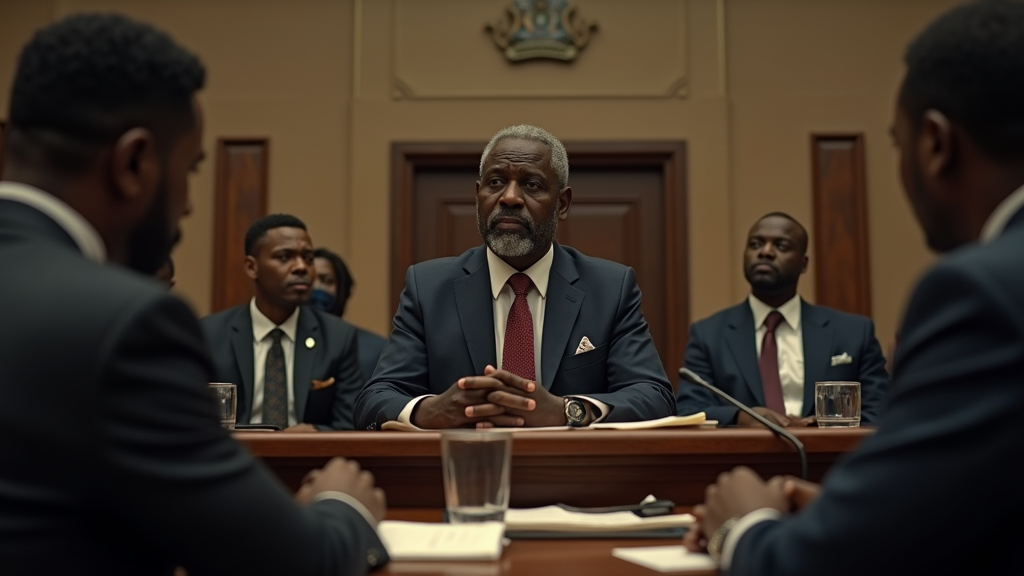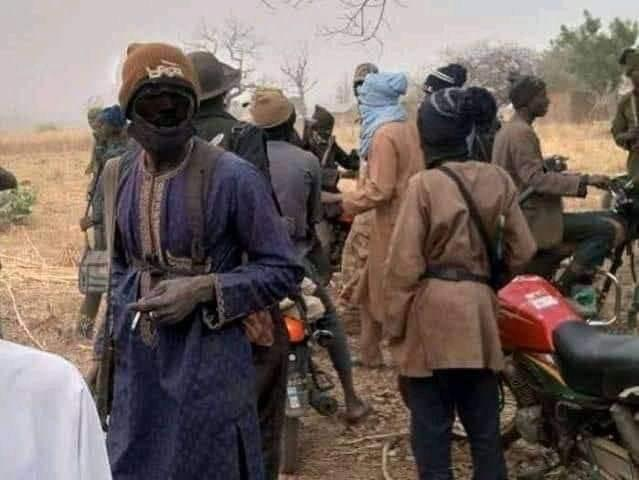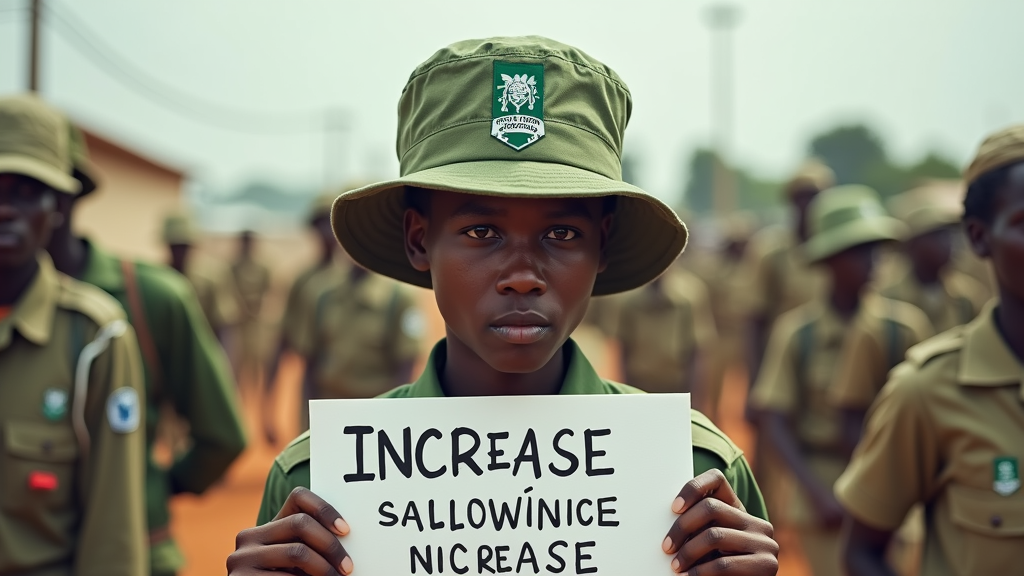The recent Sowore arrest news has sent shockwaves through Nigeria, igniting discussions about the nation’s approach to dissent and civil liberties. Human rights activist Sowore, a prominent figure in Nigerian politics and former presidential candidate of the African Action Congress, is facing fresh police charges, specifically allegations of a breach of public peace during his visit to the Force Headquarters. Nigerian Police Force Public Relations Officer, Muyiwa Adejobi, is reportedly seeking video evidence from this visit to substantiate these claims, stirring concerns about the state of political freedoms in the country. This situation comes on the heels of Sowore’s rejection of bail conditions deemed illegal, further complicating his legal battles. As the narrative unfolds, many are watching closely to see how this incident may affect the broader landscape of Nigerian police news and public discourse on human rights issues.
In recent developments concerning Omoyele Sowore, the spotlight has turned to his arrest and the ensuing legal battles that highlight significant concerns over freedom of expression in Nigeria. The former AAC presidential candidate, known for his outspoken criticism of the government, is now embroiled in a complex situation involving alleged charges that aim to curtail his activism. As the Nigerian police, under the direction of Adejobi, seek video footage to support accusations of public peace violations, the implications of such actions resonate throughout the nation. These events raise critical questions about the balance between law enforcement and individual rights, particularly for those standing against governmental authority. With growing scrutiny from both local and international observers, the narrative surrounding Sowore and the Nigerian police continues to evolve.
Sowore Arrest News: Latest Developments
The recent news surrounding the arrest of human rights activist Sowore has sent ripples through Nigerian society, especially among his supporters and political observers. On January 31, 2025, reports surfaced indicating that the Nigerian Police Force, through its spokesman Muyiwa Adejobi, is seeking to file fresh charges against Sowore, alleging a breach of public peace during his visit to the Force Headquarters. This development comes on the heels of Sowore’s refusal to comply with what he termed ‘illegal bail conditions’ set by the police, which has raised questions about the motives behind his continued detention.
Sowore’s legal team, led by the renowned lawyer Femi Falana (SAN), has been vocal in condemning the actions of the police. They argue that the charges against him are politically motivated and aim to suppress his activism. The unfolding situation raises critical discussions about human rights and the integrity of the Nigerian legal system, particularly in the context of police actions against political figures. As Adejobi seeks video evidence to substantiate the claims against Sowore, many are left wondering what this means for the future of political activism in Nigeria.
The Role of Adejobi in Sowore’s Case
Muyiwa Adejobi, the Public Relations Officer of the Nigerian Police Force, has taken a central role in the ongoing saga involving Sowore. His efforts to gather video evidence of Sowore’s recent visit to the police headquarters indicate a strategic move to justify the police’s actions. Adejobi’s public statements have drawn both criticism and support, as many view his actions as an attempt to legitimize the police’s controversial stance against a prominent human rights activist. This situation has sparked debates about accountability and transparency within the Nigerian police.
Critics argue that Adejobi’s pursuit of evidence to file new charges against Sowore reflects a broader trend of using law enforcement as a tool for political repression. By actively seeking video footage to support his claims of a breach of public peace, Adejobi may unintentionally highlight the precarious balance between maintaining public order and respecting the rights of citizens to dissent. As the situation unfolds, Adejobi’s role will likely remain scrutinized, with many calling for greater oversight of police actions in politically sensitive cases.
Understanding Breach of Public Peace in Nigeria
The concept of ‘breach of public peace’ is a legal term that carries significant weight in Nigeria, especially when applied to political activists like Sowore. Allegations of this nature can lead to severe legal repercussions, which often include detention and charges that may hinder an activist’s ability to operate freely. In Sowore’s case, the police are alleging that his actions during his visit to the Force Headquarters constituted a breach, thereby justifying their decision to seek arrest and file new charges against him.
This legal framework poses challenges for many activists who find themselves caught in the government’s crosshairs. The vague nature of what constitutes a ‘breach of public peace’ can be manipulated to suppress dissent and silence opponents. As Sowore continues to challenge the police’s authority and expose corruption, understanding the implications of these charges is crucial for anyone following the dynamics of Nigerian politics and civil rights.
The Human Rights Perspective on Sowore’s Charges
From a human rights standpoint, the charges against Sowore raise serious concerns about freedom of expression and the right to protest in Nigeria. Activists and observers have criticized the Nigerian government for its increasingly repressive measures against dissenting voices. The allegations against Sowore, particularly those framed within the context of a breach of public peace, are seen as a direct attack on his rights as a citizen and a political activist. This situation is emblematic of broader human rights issues facing Nigeria today.
Human rights organizations have called for the protection of activists like Sowore, emphasizing that their work is vital for promoting accountability and transparency in governance. The international community is also watching closely, as any unjust treatment of Sowore could lead to widespread condemnation and calls for reform. As the case develops, it serves as a reminder of the ongoing struggles for civil liberties in Nigeria, particularly for those who dare to challenge the status quo.
Political Implications of Sowore’s Arrest
Sowore’s arrest and the subsequent charges against him hold significant political implications for Nigeria. As a former presidential candidate and a prominent figure in the African Action Congress (AAC), his detention could galvanize support from various political factions and civil society groups. The perception that the government is targeting Sowore for his activism may lead to increased public dissent and mobilization, potentially destabilizing the political landscape in the country.
Furthermore, the actions taken by the Nigerian police against Sowore could set a precedent for how dissent is handled in the future. If Sowore is convicted or faces severe penalties, it may deter other activists from speaking out against government abuses. Conversely, a strong public reaction could pressure the authorities to reconsider their approach to handling political dissent and civil rights, leading to a more open dialogue about governance and accountability in Nigeria.
Adejobi’s Search for Video Evidence: Implications for Justice
The search for video evidence by Adejobi to support the charges against Sowore underscores the complexities of the justice system in Nigeria. The reliance on such evidence highlights the importance of documentation in legal processes, particularly in politically sensitive cases. However, it also raises questions about the integrity of the evidence being sought and the motivations behind its collection. Critics argue that Adejobi’s actions could be seen as an attempt to construct a narrative that supports the police’s agenda against political activists.
Moreover, the implications of this search extend beyond Sowore’s case. It reflects a broader pattern of how evidence is used in politically charged situations in Nigeria, where the line between legitimate law enforcement and political maneuvering often blurs. The outcome of this situation could influence public trust in the police and the judicial system, ultimately shaping the landscape of justice in Nigeria for years to come.
Public Reaction to Sowore’s Continued Detention
The public reaction to Sowore’s continued detention has been largely one of outrage and solidarity among his supporters. Many view his arrest as an affront to democratic freedoms and a violation of human rights. Protests have erupted in various locations, with demonstrators calling for his immediate release and denouncing the charges against him as politically motivated. This public sentiment indicates a growing discontent with the current government’s approach to dissent and has the potential to mobilize a larger movement for change.
Additionally, the media plays a crucial role in shaping public perception of Sowore’s situation. Coverage of his arrest and the subsequent developments has kept the issue in the spotlight, allowing for broader discussions about human rights, governance, and accountability in Nigeria. As more people become aware of the implications of Sowore’s case, it may lead to increased pressure on the government to adhere to democratic principles and respect the rights of its citizens.
The Future of Activism in Nigeria Post-Sowore
The ongoing situation with Sowore could serve as a pivotal moment for activism in Nigeria. His case has highlighted the risks that activists face when challenging the status quo, but it has also galvanized support and attention around issues of human rights and political repression. The outcome of Sowore’s legal battles will undoubtedly influence the strategies and approaches of future activists who seek to advocate for change in a challenging environment.
As the political landscape continues to evolve, the resilience of activists in Nigeria will be tested. Many may find inspiration in Sowore’s commitment to stand firm against what he perceives as injustice, potentially leading to a renewed wave of activism. The future of activism in Nigeria will depend on the collective response of the populace to government actions and the ability of leaders like Sowore to rally support around critical issues affecting their rights and freedoms.
Legal Challenges Ahead for Sowore
Sowore faces significant legal challenges as he navigates the complexities of the Nigerian judicial system. With multiple charges against him, including severe allegations of cybercrime and the recent accusations related to a breach of public peace, his legal team is tasked with crafting a robust defense. The legal landscape in Nigeria can be unpredictable, and Sowore’s case exemplifies the intersection of politics and law, where the stakes are incredibly high for those involved.
The outcome of Sowore’s legal battles could set important precedents for activists in Nigeria, influencing how future cases are handled and the extent to which dissent can be tolerated. As his supporters rally around him, the legal challenges he faces will not only determine his fate but also serve as a litmus test for the strength of civil liberties in the country. The coming weeks will be crucial in establishing the direction of Sowore’s fight for justice and the broader implications for human rights in Nigeria.
Frequently Asked Questions
What are the latest updates on Sowore’s arrest news?
The latest updates on Sowore’s arrest news indicate that the Nigerian Police, led by spokesperson Muyiwa Adejobi, are seeking to arrest him based on fresh charges related to an alleged breach of public peace. This follows Sowore’s visit to the Force Headquarters in response to a police invitation.
Why is Sowore facing police charges regarding breach of public peace in Nigeria?
Sowore is facing police charges for allegedly breaching public peace during his recent visit to the Nigerian police headquarters. The police claim that video evidence, sought by spokesperson Adejobi, will support the filing of these fresh charges against the human rights activist.
What evidence is the Nigerian police using against Sowore in the recent arrest news?
In the recent arrest news, the Nigerian police are reportedly seeking video evidence of Sowore’s visit to the Force Headquarters to substantiate allegations of a breach of public peace. This evidence is intended to support the new charges being considered against him.
What were the circumstances leading to Sowore’s detention by the Nigerian police?
Sowore’s detention by the Nigerian police occurred after he honored an invitation to their headquarters. He was held at the Nigerian Police Intelligence Response Team office after he rejected the bail conditions imposed on him, which he deemed illegal and unreasonable.
How has Sowore responded to the police charges and detention?
Sowore has publicly rejected the police charges and the bail conditions, labeling them as a joke. He has opted to remain in custody rather than accept what he considers unfair terms, standing firm in his belief that the charges against him are politically motivated.
What role does Muyiwa Adejobi play in Sowore’s arrest news?
Muyiwa Adejobi, the Nigerian Police Force’s Public Relations Officer, is central to Sowore’s arrest news as he is the one seeking to file new charges against Sowore. Adejobi is actively looking for video evidence to support claims of a breach of public peace during Sowore’s police visit.
What are the implications of the charges against human rights activist Sowore?
The implications of the charges against human rights activist Sowore are significant, as they raise concerns about political persecution and freedom of expression in Nigeria. The situation reflects ongoing tensions between activists and law enforcement, particularly regarding allegations of extortion and abuse of power.
What legal support is Sowore receiving in response to his arrest news?
Sowore is receiving legal support from his counsel, Femi Falana (SAN), who argues against the legality of the police’s bail conditions and charges. Falana has cited previous court rulings that support Sowore’s stance against what he considers unjust legal actions.
What has been the public reaction to Sowore’s arrest and the charges against him?
The public reaction to Sowore’s arrest and the charges has been one of support for Sowore, with crowds gathering to demand his release and condemn the charges as politically motivated. This reflects widespread concern over the treatment of activists in Nigeria.
What are the potential outcomes of the ongoing situation regarding Sowore’s arrest?
The potential outcomes of Sowore’s ongoing situation could range from the dismissal of the charges, should the evidence be deemed insufficient, to further legal battles if the police proceed with their case based on the video evidence they seek. The situation could also spark wider discussions on human rights in Nigeria.
| Key Points | Details |
|---|---|
| Police Spokesman Seeks Arrest | Adejobi is looking to arrest Sowore based on alleged breach of public peace. |
| Sowore’s Visit to Police Headquarters | Sowore visited the police in response to an invitation regarding extortion allegations against officers. |
| Bail Conditions Rejected | Sowore rejected the initial bail conditions as illegal, opting to stay in custody instead. |
| Fresh Charges Planned | Police are planning to file new charges against Sowore based on video evidence of his visit. |
| Legal Support | Sowore’s lawyer, Femi Falana, supports his stance on the bail conditions being illegal. |
| Public Support | Upon his court appearance, Sowore was met by supporters demanding his release. |
Summary
Sowore arrest news highlights the ongoing tensions between Nigerian authorities and the activist. Following an invitation to the police, Sowore’s visit has led to plans for new charges against him for alleged breach of public peace. This has drawn significant attention, showcasing the conflict between law enforcement and human rights advocacy in Nigeria, as Sowore continues to reject bail conditions he deems illegal, supported by a crowd of his supporters during court proceedings.


